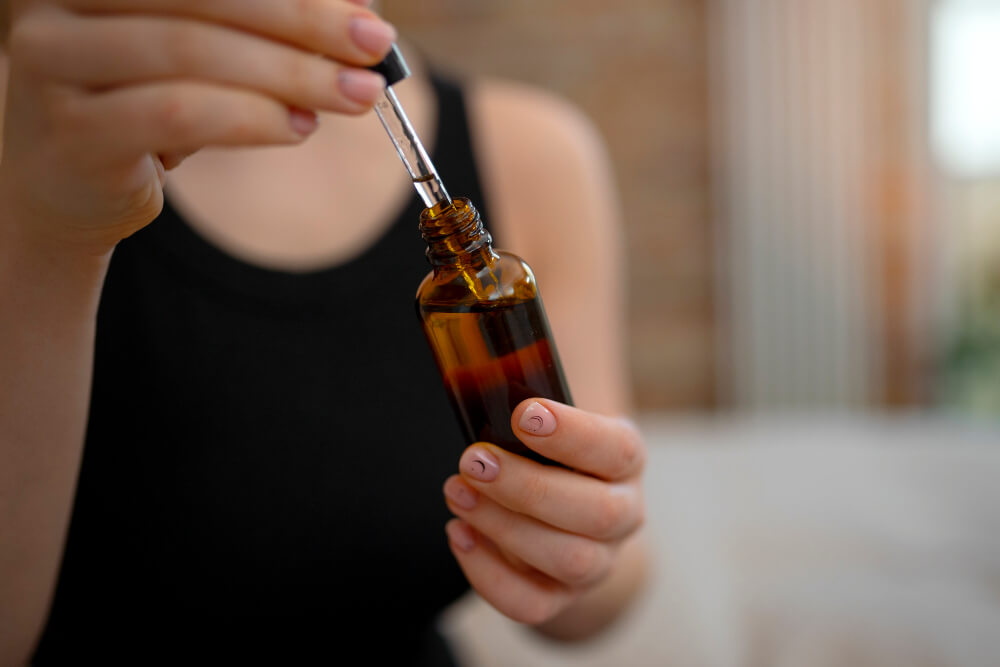Tinnitus is a medical condition often described as buzzing in the ears. Depending on the condition and person affected, people also associate tinnitus with a roaring and ringing sound in the ears. This sound is very real, and unfortunately, it doesn’t have an outside source, which makes it even more annoying.
According to many studies, nearly 25% of adults suffer from tinnitus or experience some form of this disorder. While this condition has no cure, you can explore various options to minimize its effects and reduce symptoms.
In this blog post, we will explain how essential oils can help you manage tinnitus.
What are essential oils?
Essential oils are concentrated liquids made from plants, including fruits and herbs. The most common types are lavender, peppermint, and lemon, but there are hundreds of them. Essential oils have been used for centuries and are often used in the food or cosmetic industry to add flavor or pleasant smell.
Unfortunately, essential oils aren’t regulated by the FDA; therefore, you need to be extra careful when buying this product. Additionally, there is a lack of evidence to support the claim that essential oils can help with tinnitus.
Essential oils for tinnitus
While essential oils can’t completely cure tinnitus, they can improve sleep, promote relaxation, and minimize anxiety, which could potentially alleviate tinnitus symptoms.
Some essential oils recommended for this condition are:
Helichrysum oil: some claim that this oil can repair nerves and blood vessels and cause fluid drainage, which may reduce the pressure and help with tinnitus.
- Patchouli oil: it is suspected that patchouli oil has draining properties and circulatory benefits.
- Basil oil: some experts claim that basil oil can calm smooth muscle cells in an ear, which could lead to reduced tinnitus symptoms. Also, basil oil has antibacterial properties, which may help with the tinnitus caused by an annoying ear infection.
- Lavender oil: this is a popular choice among many people. Lavender oil can reduce inflammation, boost relaxation, and minimize anxiety, all the important things when managing tinnitus.

Are there any dangers connected to essential oils?
Essential oils may come with certain benefits, but it’s important to be cautious when using them, especially for medical and therapeutic purposes. This solution is highly concentrated and should be used on its own. Undiluted essential oils might negatively affect your skin and sometimes be poisonous.
Moreover, only trained professionals should administer essential oils because, most of the time, they aren’t intended for oral or internal use. Their inhalation can irritate the respiratory tract and worsen existing health conditions like asthma. FDA doesn’t regulate essential oils, which means their quality and purity aren’t monitored.
If you are going to use essential oils for the purpose of managing tinnitus, it is essential to follow certain safety precautions. You should:
- Talk to your doctor before using essential oil for tinnitus.
- Never put pure oil directly in your ear.
- Make sure to dilute the essential oil with carrier oil.
- Never apply essential oil to infants or children.
- Don’t intake essential oils orally.
How to use tinnitus essential oils
While essential oils are believed to relieve the symptoms of tinnitus, it is important to know how to use them to minimize side effects and potential harm.
You shouldn’t apply essential oil directly into the ear canal because mucous membranes are very sensitive, and oil can damage them.
If you want to treat tinnitus with essential oil, use a cotton pad soaked with a couple of drops of essential oil and apply it directly to the skin behind the ear, ear lobe, or neck.
Use a carrier oil like sesame or coconut oil to dilute essential oil.
How to prevent tinnitus?
If tinnitus runs in the family, or you have a history of hearing loss, or you work in a loud and noisy environment, here is what you can do to prevent tinnitus.
- Ear exam: this is one of the first things you should do. Get a yearly ear exam just to make sure everything is alright.
- Keep your ears clean: clean your ears often. Don’t use cotton swabs because they can lead to ear infections; instead, use a damp, clean cloth.
- Avoid loud noises: If you are exposed to loud noises or work in an environment such as construction, then we suggest you use earplugs to protect your ears.
